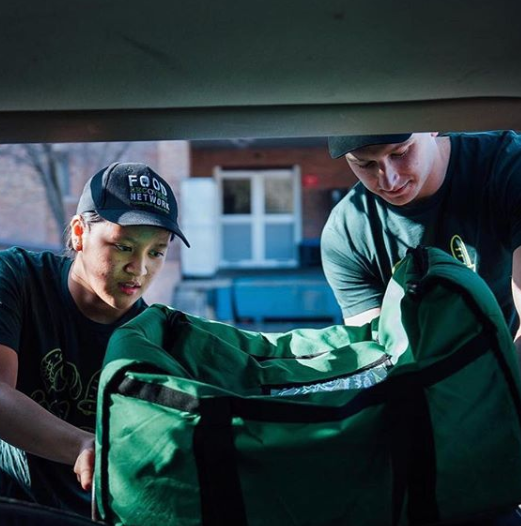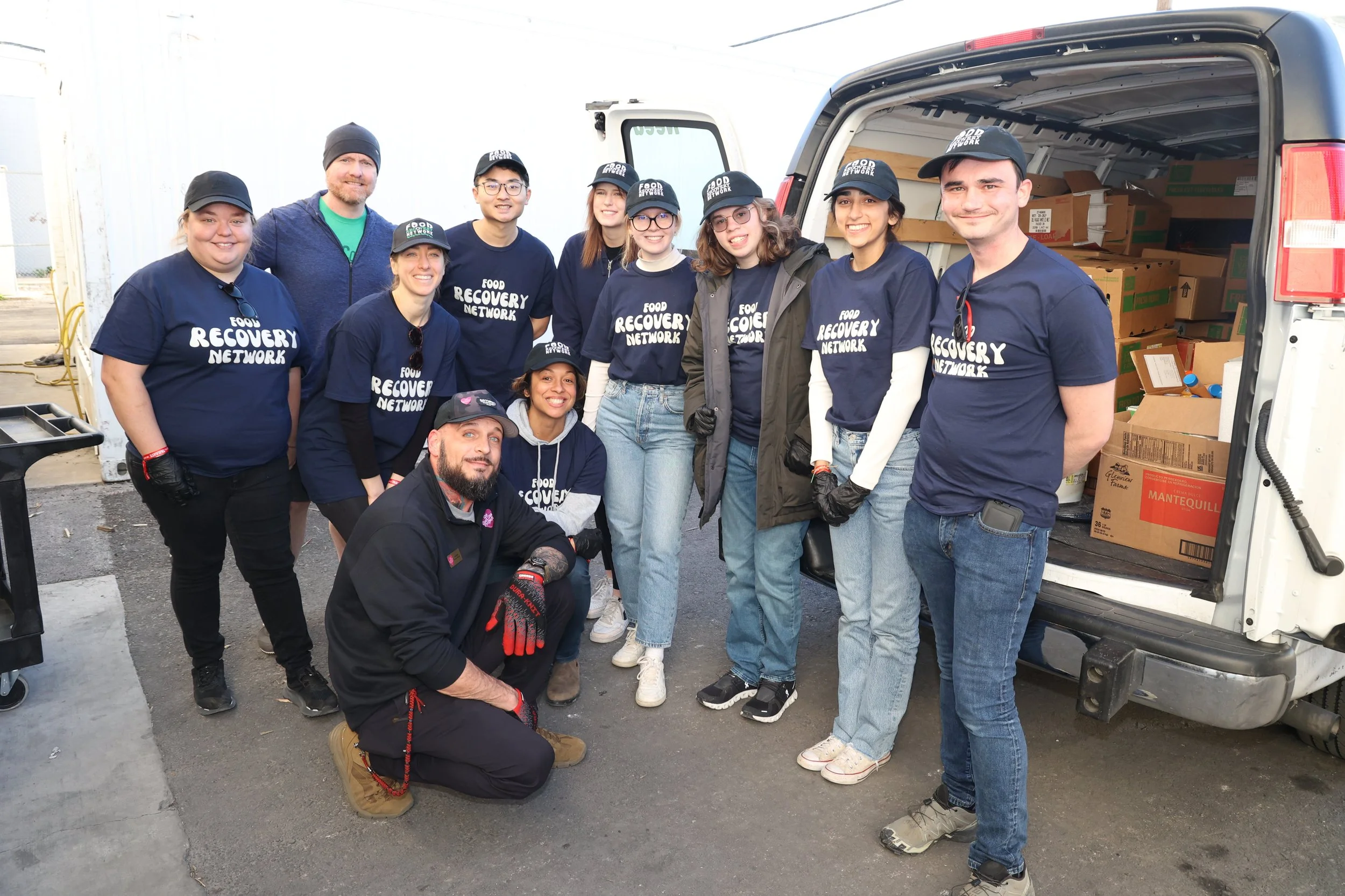You made it! The holidays are over and 2017 is here! We’re about a week in,and so many of you may be well on your way to making (or breaking) your resolutions.
The term “resolution” is well overdue for a makeover: it’s a term that reflexively brings to mind half-hearted self-improvement kicks - no matter how many resolutions people successfully stick with throughout the entire year.
One way to assist with the completion of your resolutions is to anchor them to a larger movement. Here at FRN, we’re doing that through the lens of food recovery. If you’re starting to falter on those resolutions already, see if you can factor a few of these into your everyday life!
1. GET A FRIEND TO START A CHAPTER
Normal Resolution: Keep in touch with long distance friends.
It’s true that reconnecting with a friend can be a little anxiety-inducing, especially over the phone. With that being said, FRN can be a wonderful conversation starter.
If your friend is currently going to college, see if their school has an established chapter of FRN. If you feel comfortable with doing so, suggest that they get involved with an existing club or start one of their own!
2. DATA UP
Normal Resolutions: Fight "fake news", add items to your reading list.
Ah, fake news. One can only hope that this trend follows Myspace’s lead – that is, become lost to the sands of time. Forever.
One way to combat this trend is to become well versed in the statistics and data surrounding food waste, food recovery, and other poverty-fighting initiatives.
If you’re already involved with FRN, it’s likely that you’re already familiar with the statistic that 40% of all food produced in the U.S. is wasted, while 1 in 7 individuals go hungry every night. As leaders in the food recovery realm, it’s our responsibility to do a deep dive and learn about the myriad of statistics surrounding food recovery.
ReFed, the National Resource Defense Council, and FRN’s End of Year Report are all excellent resources for no-nonsense reports of food recovery.
3. EAT LEFTOVERS
Normal Resolution: Keep your room tidy.
When it comes to roommates, I’ve met some amazing people – one of whom I consider to be a life-long friend. With that being said, I’ve met those who’ve enjoyed turning the refrigerator into a science experiment with expired food.
To avoid being “that roommate,” consider finishing the leftover food from the night before. Not only are you saving money and eating perfectly good food, but your roommates will love you forever.
If you have a roommate that violates the “no mold in the fridge” rule, it might be time to have a talk with them. While this can be uncomfortable to bring up, setting boundaries about cleanliness can help your relationship in the long-term.
4. HOST AN EVENT ON CAMPUS:
Normal Resolution: Have a greater presence on your college campus.
This one’s a no-brainer. If your team has the capacity to do so, take a look at the many opportunities to expand your FRN chapter’s presence on campus!
Want to recruit, fundraise, and promote goodwill during chilly weather? We recommend a hot chocolate drive!
5. LOVE UGLY FRUIT
Normal Resolution: Learn to cook.
The benefits in learning how to cook are endless. In addition to eating healthier, impressing your significant other, and learning a cool skill, you can utilize food that might otherwise be thrown away!
Source reduction is the most effective form of food recovery. Annually, sixty million tons of perfectly edible food never makes it from the farm to store shelves because the produce:
- Is oddly shaped / too big / too small
- Will not be ripe during the transportation process
-or-
- Has small blemishes that consumers may find unappealing.
You can purchase “ugly” produce at your local farmer’s market or supermarkets. By financially incentivizing so-called “ugly” produce, you’re helping create a market for source reduction of food waste.
-------------------------
To all of our FRNds, here’s to a wonderful, recovery-filled 2017. With your help, we’ll be able to reach 2 million pounds of recovered food in no time!








